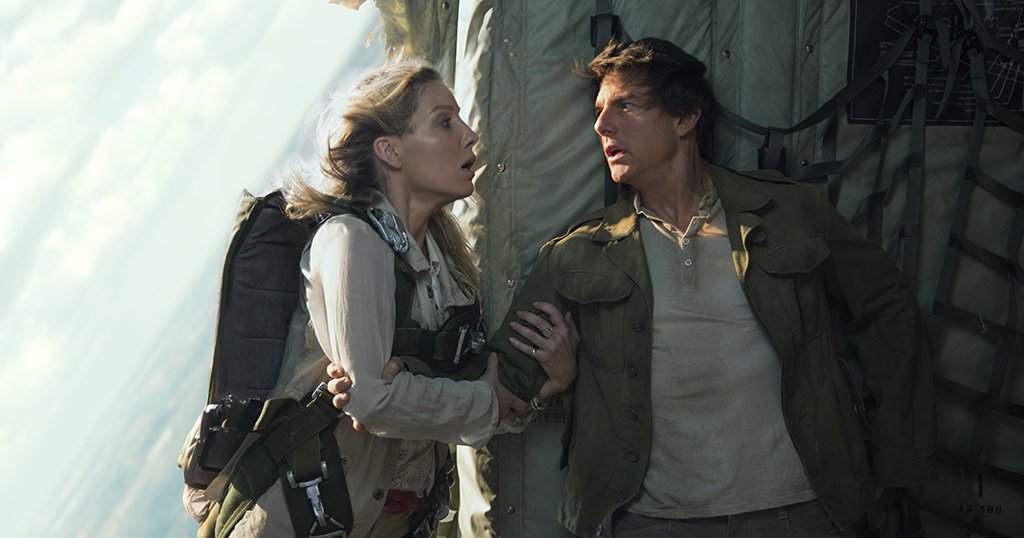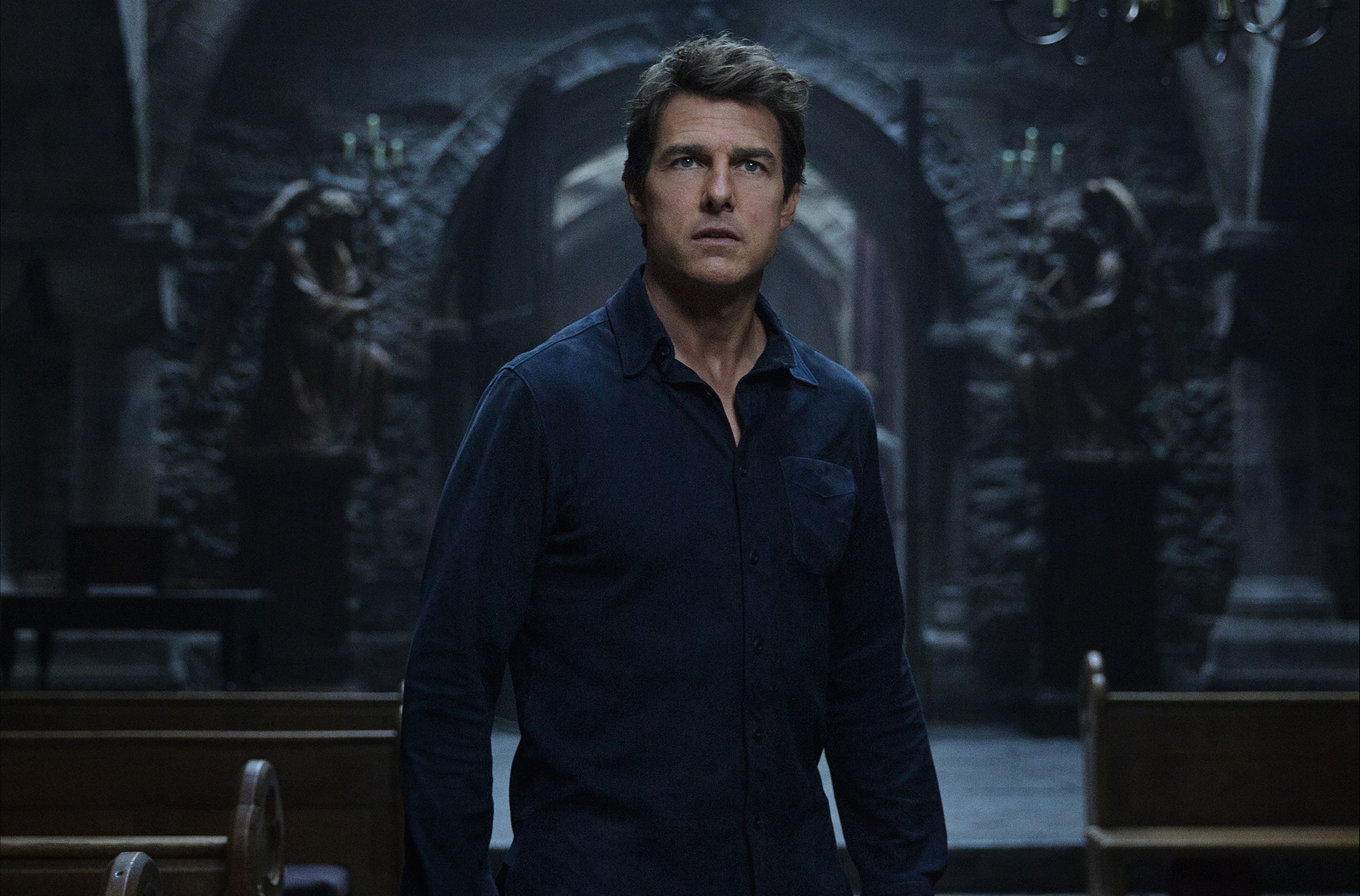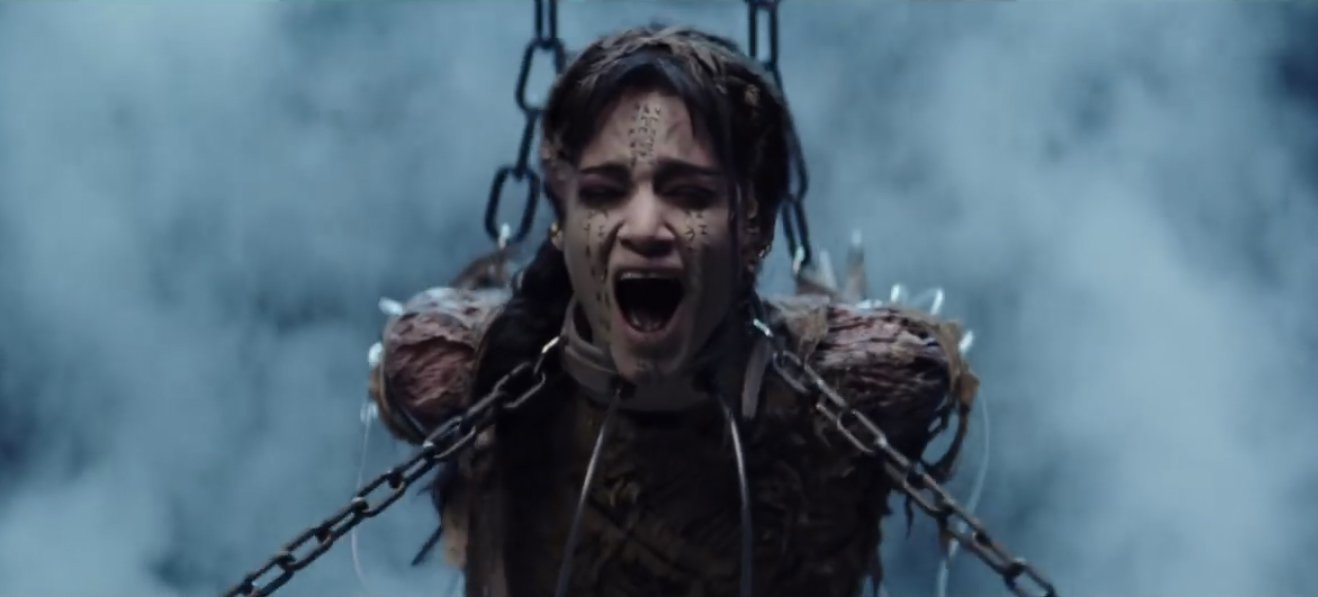
Nick Morton (Tom Cruise, right), attempts to save mysterious archaeologist Jenny Halsey (Annabelle Wallis) during a plane crash in THE MUMMY.
The Mummy is the story of Ahmanet (Sofia Boutella), an Egyptian princess once primed to ascend to the throne, who is wronged and denied her seat of power. Vengeful, Ahmanet signs a pact of blood with the god of death Set to reclaim what she believes is her rightful position. While powerful yet accursed, the princess is thwarted and buried with the warning of her evil to any who might one day uncover her tomb.
Enter Nick Morton (Tom Cruise) thousands of years later. Morton is a man of loose morals and hungry pockets—he serves the military as a private contractor willing to enter dangerous territory with the ulterior motive of discreetly acquiring minor antiquities (that he is liberating he’d have you know) in order to make an under-the-table profit. With the accidental discovery of Ahmanet’s prison, he unwittingly makes himself the mark of the princess who seeks to use his corporal form to exact revenge and solidify her status as a living deity.

What works in The Mummy is Boutella, the action sequences, and the aspiration. Boutella once again shines in a film where the role on paper might be considered weak, shallow, or one-dimensional. For reference, see how she elevated the characters of Gazelle in Kingsman: The Secret Service and Jaylah in Star Trek Beyond to create memorable and complex individuals that directly contributed to the tonal lifeblood of those films. Boutella doesn’t have much time to talk given that she is either screaming or tossing around Cruise like a cotton-stuffed rabbit (which is highly entertaining), but no matter what her activity, the woman has undeniable presence. She is menacing, conniving, and exacting—the combination of the three elements is a cocktail of confidence that demands attention.
Director Alex Kurtzman, while new to the chair, proves relatively adept at framing engaging sequences. In particular, a plane crash showcases his skill with the majority of the action choreographed in zero-gravity environments that simply couldn’t be faked. This attention to detail continually shines through widely shot chases and intimate hand-to-hand combat. Similarly, Kurtzman uses details to give homage to cinematic predecessors which eagle-eyed fans of the Universal monster movie catalogue will appreciate if they give rapt attention to props, settings, and plot devices.

While The Mummy’s breakneck speed and Boutella’s immersion into character help keep audiences engaged, there are some underlying issues with regard to the other players and a commitment to long-term goals. Cruise, as per usual, embraces the crazy premise at 110%. Unfortunately, his supporting crew have little to do with mostly contrived motivations and backstories. The most egregious offense this in regard is Annabelle Wallis (Peaky Blinders) as Jenny Halsey. Halsey is introduced with malice towards Morton and then does a 180 given the convenience of the script. A simply alteration could have been made regarding Morton and Halsey’s relationship which would have made their willingness to support each other more believable (and relatable), but instead the screenwriter committee of David Koepp, Christopher McQuarrie, and Dylan Kussman went for an interaction and subsequent evolution that is both clichéd and tired.
Perhaps the most frustrating aspect of the The Mummy is its failure to deliver on the promise of an expanded interconnected monster universe. Universal Pictures has the bravado to introduce the film with a Dark Universe logo sequence but offers little if any hints of any larger story at play. Yes, Russell Crowe’s Dr. Henry Jekyll/Edward Hyde character has been named the connective tissue of the proposed movies, and he does an admirable job playing a morally ambiguous character amidst the fast-paced action and turmoil, but his involvement seems shoe-horned into a film that doesn’t want to quite commit to a longer play. Perhaps that’s the biggest issue with The Mummy—obvious risk-aversion at both a micro and macro-level. On a character level, a particularly well-written sequence gives Ahmanet a hint of relatable motivation complexity, but quickly abandons it. Similarly, the ending of The Mummy is likely to frustrate many with the ambiguity surrounding what the next chapters would be especially since Universal has insinuated it has a master plan.
The Mummy is a delightful film that suffers a bit from impostor syndrome. It knows its potential to kick-start a grand revolution of monster movie mayhem, but each step forward is marred with twinges of uncertainty as it struggles to find the right cadence of plot, humor, action, and horror. This opening act is enjoyable as a warm-up and hopefully the subsequent films will exude a bit more confidence.
Grade: B
Photos courtesy of Universal Pictures